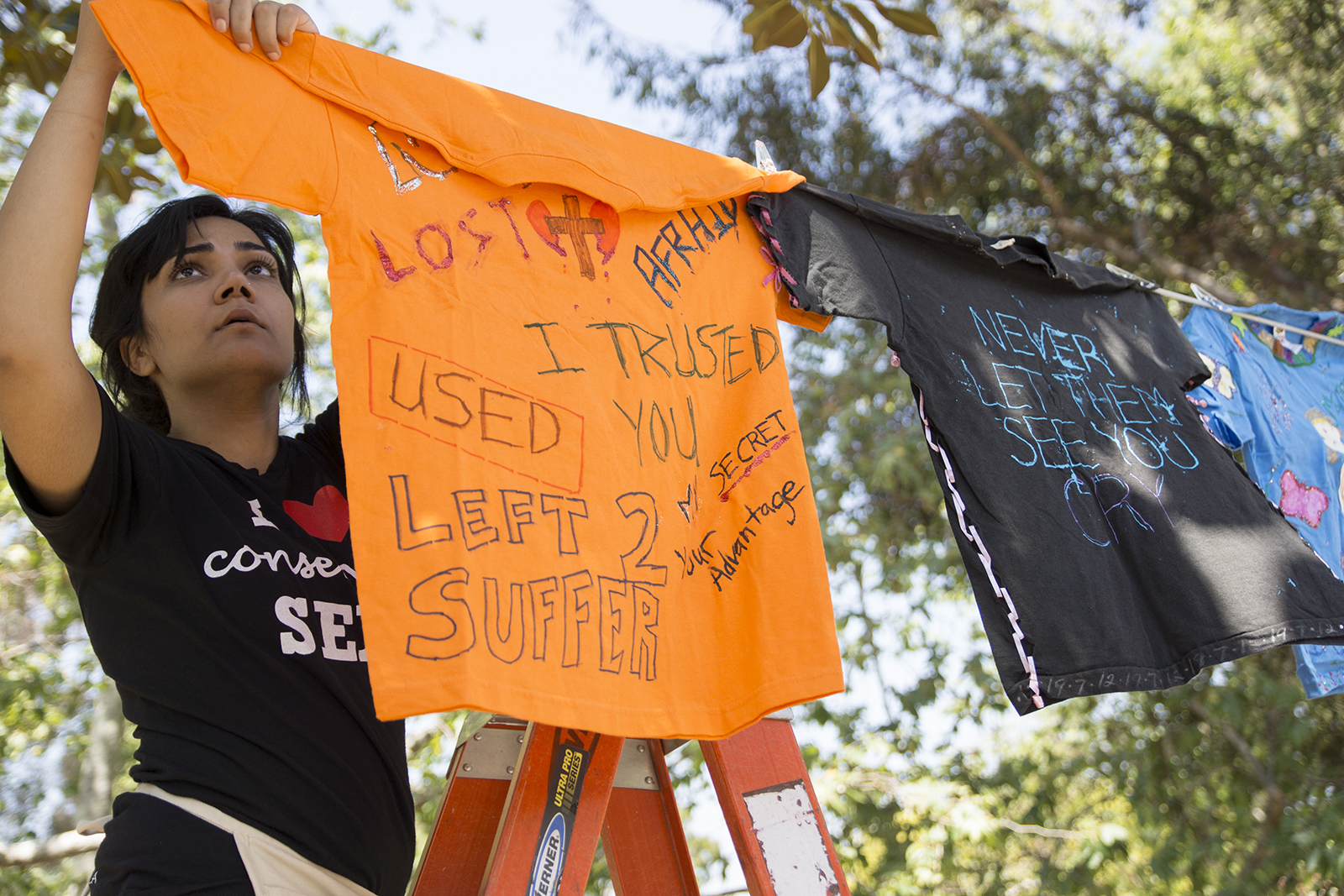Clea Wurster: Orientation’s slogan ‘consent is sexy’ demands an upgrade

UCLA’s New Student Orientation utilizes a “consent is sexy” slogan to base its sexual consent curriculum. However, in its attempt to be catchy, this slogan fails to convey the necessity of consent in sexual interactions. (Daily Bruin file photo)
By Clea Wurster
April 10, 2017 11:03 p.m.
This post was updated on April 12 at 7:30 p.m.
April is Sexual Assault Awareness and Prevention Month. What better time to discuss consent and how downright sexy it is? Or at least, that is what UCLA’s orientation wants incoming freshmen to do.
The curriculum at UCLA’s summer New Student Orientation is supposed to generate dialogue among students and inform them of California laws, UCLA policies and campus resources about relevant issues, according to Roxanne Neal, director of new student and transition programs.
One of the curriculum’s most impactful aspects is its segment on sexual education. The student-run Bruin Consent Coalition, UCLA’s Title IX offices and Neal’s team created a curriculum which has adopted language from a national “Consent is Sexy” campaign. “Consent is sexy” leaves clarification up for interpretation and poses too many questions: Could a shy smile count as consent? “Sexy” does not necessarily line up with the legal definition.
Thus this slogan misses the point, reverting to the infallible “sex sells” approach that we so often see, and it does little to help students understand why consent is important in the first place.
In other words, while the curriculum itself is informational and beneficial to students, the slogan portrays consent as an added bonus to sexual interactions rather than a requisite of sex. We need an alternative slogan to galvanize conversation while imparting that consent is a non-negotiable part of sex.
The first and most obvious issue that lies in the curriculum’s slogan is that it hardly scrapes the surface of the realities of consent. As defined by University of California Policy on Sexual Violence and Sexual Harassment, consent is affirmative, conscious, voluntary and revocable. Any tagline associated with student orientation should accurately promote this definition. While “consent is sexy” is a catchy slogan, using a light tone to approach a heavy issue, especially on college campuses, is irresponsible. To claim that consent is anything aside from the definition above is to muddy already-dark waters.
In fact, students already have misconceptions about healthy sexual relationships, manifested in the many definitions students have of consent. These definitions are often incomplete or incorrect, as is the case with the common interpretation that consent is the absence of a “no.”
Second-year English student and New Student Advisor Audrey Miano said context is an integral part of this slogan’s efficacy and when taken out of context, she understands how it might be harmful. Considering slogans are usually taken out of context – since we don’t have time for an hourlong discussion of consensual sex every time we use a slogan – it must function on its own.
Furthermore, while consent is always necessary, it is not always sexy. In fact, consent is oftentimes a conversation entirely separate from the act of sex. This representation could alienate some students and may even make them feel that they cannot communicate consent outside the bedroom. The last thing a slogan such as this should be doing is pushing students further away from a dialogue about consent.
And therein lies the fundamental flaw of the current curriculum’s slogan: Consent shouldn’t be sexy – it must be normal. Oftentimes it is not, but we should not reward basic human decency with commendations of “sexiness.” When we discuss consent as if it is negotiable and buy into harmful societal norms, we further contribute to the issue.
UCLA is home to some of the brightest minds and to expect so little from us that we are rewarded for average behavior does us a disservice.
Neal said that the tagline helps to incentivize consent by communicating that it doesn’t have to feel like a burden or an awkward exchange, but can be fun for you. But this is like rewarding average behavior with a gold star. It lowers the bar even further and implies the only reason we engage in consensual sex is for our own enjoyment, rather than our partners’ and our own well-beings.
No one expects the orientation program to capture a topic as complex and multifaceted as consensual sex in three words. Both Miano and Neal said that the catchphrase should open the conversation to all students and isn’t an all-inclusive definition of consent.
But we can do better. Though “consent is mandatory” may sound daunting, it more accurately portrays the necessary nature of consent, rather than presenting it with a flippant and fun tone more appropriate for a bad pop song.
Rigidity in sexual consent education will never work. The curriculum must constantly be reformed to meet ever-changing needs, and the slogan must change along with it. This should not be difficult, considering Neal herself stated the curriculum hardly ever remains the same two years in a row.
As Gina Faldetta so eloquently put it in AC Voice, a student-run publication at Amherst College, “Sex without consent isn’t bad sex. Sex without consent is rape.” To imply that consent is anything other than required is to further convolute students’ ideas of consent. Consent is mandatory, and we should always make that abundantly clear to our students.

